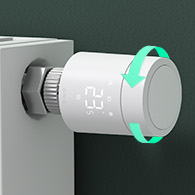I have similar circumstances and had the same decision to make. In the end I decided to stay with the heat only open vented boiler. My reasons for doing so, some of which may also be applicable to you were:
1. I was able to keep the existing hot water cylinder, motorised valves, programmer and thermostats, so the installation wasn't at all disruptive.
2. I like to DIY. Open vented, heat only boilers have a lot of components externally mounted. Diverter valves, header tank, cylinder thermostat, pump, programmer etc. These can be easily repaired or replaced with parts readily obtainable from local plumbers merchants or DIY outlets. On the other hand, combi's generally have their equivalent components located internally, the components are usually specific to the manufacturer and not suitable for DIY as they require the attention of a gas safe registered engineer to replace them.
3. When heating hot water completely from scratch combi's have to heat up their main heat exchanger first, then transfer the hot water to a second heat exchanger before any hot water can even start its journey to the taps. My previous experience of a property with a combi that was located in the Kitchen and a long way from the bathroom, was that more often than not, the hot water never arrived before I had finished whatever I had originally wanted it for. A complete waste of the gas burned, and if I were to wait for it to run hot, a waste of water. On the other hand, my hot water cylinder is centrally located so hot water reaches all of the hot taps within a few seconds.
4. To have a Combi boiler, in order to get an adequate gas supply to heat hot water from cold instantaneously, I was told I would have needed the original 15mm gas supply pipe upgraded to 22mm. The installer wanted to run this ugly pipe from the gas meter at the front of the house, around outside of half of the property and a door frame, all on show, to reach the boiler at the back of the house. Classy!!
5. Mrs Stem loves her airing cupboard. Everything is well insulated in there so it doesn't get too hot, just warm enough for what's needed.
6. My cold main water supply isn't great, a single 15mm pipe pipe supplies all of the cold taps, WC’s, washing machine, dishwasher, etc., and can only really adequately supply one point at a time. With a combi it would also have to supply the hot water too. Keeping the hot water cylinder and associated feed tank means that there is a stored supply of water, which is unaffected by the use of the cold water elsewhere.
7. The open vented system doesn't require any manual topping up / re-pressurising. It is kept full by the header tank.
8. An immersion heater is a handy back up and can provide hot water when the boiler breaks down.


